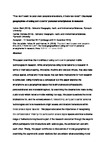“You don't want to peer over people's shoulders, it feels too rude!”: the moral geographies of using participants’ personal smartphones in research
| dc.contributor.author | Holton, Mark | |
| dc.contributor.author | Harmer, Nichola | |
| dc.date.accessioned | 2018-02-02T11:45:56Z | |
| dc.date.available | 2018-02-02T11:45:56Z | |
| dc.date.issued | 2019-02-05 | |
| dc.identifier.issn | 0004-0894 | |
| dc.identifier.issn | 1475-4762 | |
| dc.identifier.uri | http://hdl.handle.net/10026.1/10718 | |
| dc.description | Full text embargoed until 16.04.2020 (publisher's embargoe period, 24 months) | |
| dc.description.abstract |
<jats:p>This paper examines the moralities of using participants’ personal mobile technologies in research. While smartphones bring novel benefits to research in terms of their labour‐saving, innovative, intuitive and low‐cost virtues, they also raise unique spatial, ethical and moral issues that can have implications for how research is conducted. Using morality as a conceptual tool, this paper explores the smartphone as a geographical space that is simultaneously private/public, personal/shared and material/imagined. By examining the observations made during a study which tested a mobile walking tour app, this paper questions the moral implications for, and the consequences of, researching using participants’ personal technologies and how researchers might access and interpret behaviours within these private digital “spaces.” This paper advocates the importance of recognising the complexities of moving into participants’ private digital spaces and how a diverse range of behaviours may become part of the research encounter through the ways in which participants form interactions with technologies, the environment and with each other. Finally, this paper contributes to discussions of moral geographies by examining the asymmetric power relations that are evident when examining moral behaviours that are performed simultaneously in digital and geographical spaces, and questions whether these may be functions of hegemonic systems of “acceptable” behaviour.</jats:p> | |
| dc.format.extent | 131-141 | |
| dc.language | en | |
| dc.language.iso | en | |
| dc.publisher | Wiley | |
| dc.subject | methods | |
| dc.subject | moral geographies | |
| dc.subject | practice | |
| dc.subject | qualitative research | |
| dc.subject | smartphones | |
| dc.subject | virtual space | |
| dc.title | “You don't want to peer over people's shoulders, it feels too rude!”: the moral geographies of using participants’ personal smartphones in research | |
| dc.type | journal-article | |
| dc.type | Journal Article | |
| plymouth.author-url | https://www.webofscience.com/api/gateway?GWVersion=2&SrcApp=PARTNER_APP&SrcAuth=LinksAMR&KeyUT=WOS:000457926700015&DestLinkType=FullRecord&DestApp=ALL_WOS&UsrCustomerID=11bb513d99f797142bcfeffcc58ea008 | |
| plymouth.issue | 1 | |
| plymouth.volume | 51 | |
| plymouth.publication-status | Published | |
| plymouth.journal | Area | |
| dc.identifier.doi | 10.1111/area.12425 | |
| plymouth.organisational-group | /Plymouth | |
| plymouth.organisational-group | /Plymouth/Faculty of Science and Engineering | |
| plymouth.organisational-group | /Plymouth/Faculty of Science and Engineering/School of Geography, Earth and Environmental Sciences | |
| plymouth.organisational-group | /Plymouth/REF 2021 Researchers by UoA | |
| plymouth.organisational-group | /Plymouth/REF 2021 Researchers by UoA/UoA14 Geography and Environmental Studies | |
| plymouth.organisational-group | /Plymouth/Research Groups | |
| plymouth.organisational-group | /Plymouth/Research Groups/Centre for Research in Environment and Society (CeRES) | |
| plymouth.organisational-group | /Plymouth/Research Groups/Centre for Research in Environment and Society (CeRES)/CeRES (Reporting) | |
| plymouth.organisational-group | /Plymouth/Users by role | |
| plymouth.organisational-group | /Plymouth/Users by role/Academics | |
| dcterms.dateAccepted | 2017-12-14 | |
| dc.rights.embargodate | 2020-4-16 | |
| dc.identifier.eissn | 1475-4762 | |
| dc.rights.embargoperiod | Not known | |
| rioxxterms.versionofrecord | 10.1111/area.12425 | |
| rioxxterms.licenseref.uri | http://www.rioxx.net/licenses/all-rights-reserved | |
| rioxxterms.licenseref.startdate | 2019-02-05 | |
| rioxxterms.type | Journal Article/Review |


